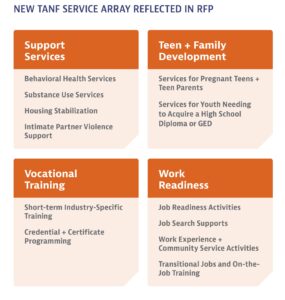Key Highlights
Challenges
Public sector programs play a key role in training individuals with employment challenges, such as dislocated workers, people with disabilities, English language learners, recipients of public assistance, justice-involved individuals, people in recovery, or those entering the job market for the first time. It is vital to ensure the effectiveness of these programs; however, completion rates for many workforce programs are low, and even participants who finished the programs could not find and keep jobs. While the federal government provides significant funding for state-run programs, federal restrictions such as narrow eligibility requirements and onerous application procedures impede state innovation.
Opportunities
To overcome problems with the traditional approach to managing public sector workforce programs, Rhode Island created employer-focused partnerships, provided performance-based bonus payments to providers, measured the long-term outcomes of participants, and engaged in active contract management.
The state consulted stakeholders to ensure that it was purchasing the best mix of services and monitored the performance of training contracts in real time to assess whether they were meeting their goals. This created an opportunity to refocus and redesign programs toward better outcomes, which was proven through a number of Rhode Island case studies.

Findings and Next Steps
- Outcomes-based funding helps to build programs that enable workers with employment challenges to obtain, and keep, good jobs with strong career trajectories.
- Federal funding is most helpful if it is flexible in supporting these innovative state programs.


